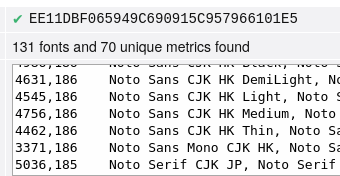this post was submitted on 19 Jul 2024
97 points (100.0% liked)
Privacy
31978 readers
248 users here now
A place to discuss privacy and freedom in the digital world.
Privacy has become a very important issue in modern society, with companies and governments constantly abusing their power, more and more people are waking up to the importance of digital privacy.
In this community everyone is welcome to post links and discuss topics related to privacy.
Some Rules
- Posting a link to a website containing tracking isn't great, if contents of the website are behind a paywall maybe copy them into the post
- Don't promote proprietary software
- Try to keep things on topic
- If you have a question, please try searching for previous discussions, maybe it has already been answered
- Reposts are fine, but should have at least a couple of weeks in between so that the post can reach a new audience
- Be nice :)
Related communities
Chat rooms
-
[Matrix/Element]Dead
much thanks to @gary_host_laptop for the logo design :)
founded 5 years ago
MODERATORS
you are viewing a single comment's thread
view the rest of the comments
view the rest of the comments

This is like those people who say that the only form of safe sex is abstinence. Technically true, practically useless.
I'm slowly starting to agree with @ssm that safeguarding against fingerprinting is an exercise in futility though...QubesOS sounds like something that might help though, since it makes it easy to browse from a virtual machine with fonts and other settings that may be leaked set to the most bog-standard defaults.
On a related note, disabling javascript can actually improve your user experience quite a lot for certain types of tasks. A lot of news/blogs/article-style websites nowadays are actually more usable without javascript, because you don't have to waste time closing all of the ads and cookie popups. I have a separate browser profile with js disabled and use it quite a lot.
No script lets you individually allow js on certain sites, even specific sources. Block all by default, allow safe sites or temporarily allow other sites based on need. I started doing that this year and it hasn't been nearly as much trouble as I thought it would be.